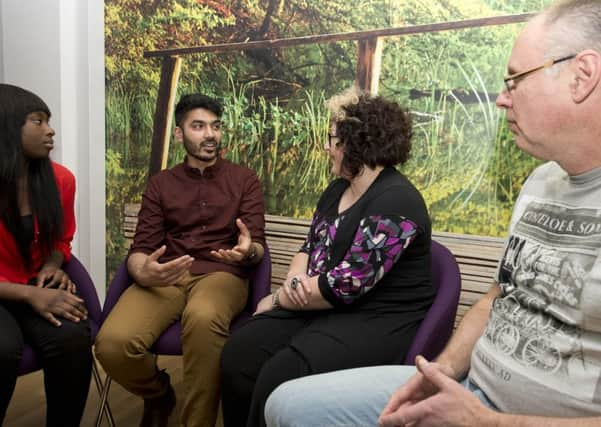People encouraged to join groups to reduce social isolation


The woman, who wished not to be named, turned to joining a support group and is now branching out to taking part in other activities.
It was a step she once feared due to her condition and other medical problems.
Advertisement
Hide AdAdvertisement
Hide AdBut finding the strength within to make the first move, she hasn’t looked back since.
As well as arts and crafts sessions, she enrolled in a tai chi course for beginners and is now taking part in more social activities.
She said: “I suffered from low mood and anxiety and it was my counsellor who suggested I try some activities to get me out of the house and mixing with new people.
“I joined a support group, but on the first session, due to problems with my hearing, I found it difficult when people were having conversations so I left the session.
Advertisement
Hide AdAdvertisement
Hide Ad“But I was followed out by the person leading the session who asked me what was wrong and offered to sit with me for the first few weeks.
“I eventually joined an arts and crafts group and this really helped to build my confidence and I have gone on to facilitate the group.”
The woman, who was signposted by Mind, is now encouraging others to find out what is going on in their local neighbourhoods and not be worried about making taking that step.
According to a report published by Mind depicting a theory ‘Life Support’ - it recognises support generally comes from not the health system but also from a patchwork of local community services providing advice, information and social contact or life support.
Advertisement
Hide AdAdvertisement
Hide AdLife Support promotes practical help with day to day living that people with mental health problems often need in order to stay well and live a full life.
A Mind spokesman said: “Christmas can be a lonely time for some and often community groups are a lifeline for people who are socially isolated.
“Local Minds have a range of support groups available which aim to provide people with a level of support that they can rebuild social skills, increase confidence and self-esteem and be actively involved in the community to help reduce loneliness and isolation.”
Mind promotes the five ways to wellbeing.
These include: Connect, Be Active, Take Notice, Keep Learning and Give.
Advertisement
Hide AdAdvertisement
Hide AdOur series of articles in the run-up to Christmas, supported by Hartlepool and East Durham Mind, aims to encourage people to reach out to others and let those struggling know support is available.
Today, people are being asked if they have a scarf/hat/gloves that you don’t need to tie them to a tree or post and leave a message saying if you need this - please take it.
Hartlepool and East Durham Mind have a range of wellbeing projects available to help and support those who may be struggling with life.
This includes providing one-to-one support and group work through a range of projects and activity sessions, including Mindskills Recovery College - a new service, which aims to support people in improving their emotional wellbeing. It also includes short term education courses to enable people to take control of and manage their own recovery; wellbeing workshops which teach basic information and skills to do with health awareness and stress management. These courses are available to anyone who would like to improve their mental/emotional wellbeing. The overall aim is to teach people effective skills for self-management and give them the tools to manage their own mental health.
The charity also offers peer-to-peer support groups run by service users and facilitated by a worker.